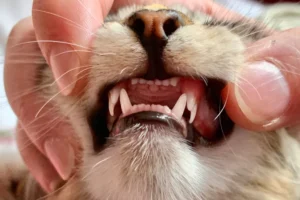Have you ever caught your cat nibbling on paper and wondered why they do it? It’s a common behavior among felines that can leave pet owners scratching their heads. Let’s explore the reasons why your cat may chew on paper and what you can do about it.
Cats chew on paper for a variety of reasons, from boredom to dental issues. Understanding these reasons can help you address the behavior and keep your furry friend happy and healthy.
Curiosity Piqued: Exploring Cats’ Natural Instincts
Have you ever caught your feline friend munching on paper and wondered, “Why on earth are you doing that?” Well, let’s dive into the fascinating world of cats to uncover some answers.
Cats are natural hunters, and their curiosity knows no bounds. They love exploring their surroundings and investigating anything that piques their interest. Chewing on paper may just be another way for them to satisfy their innate need to hunt and investigate new textures and scents.
Additionally, cats have an instinctual urge to groom themselves continuously to keep clean and healthy. Chewing on paper could mimic the sensation of grooming by helping them remove debris or food particles from their teeth. So, next time you catch your kitty nibbling on a piece of paper, remember that it might just be their way of satisfying their curious nature and grooming instincts.
Dental Dilemma: How Oral Health Plays a Role
When it comes to cat’s oral health, dental issues can play a significant role in their paper-chewing habits. Just like humans, cats can suffer from dental problems such as gum disease, tooth decay, or even oral sores. If your furry friend is experiencing any discomfort in their mouth, they may resort to chewing on paper to alleviate the pain or irritation.
To ensure your cat’s oral health is in top shape, it’s essential to schedule regular check-ups with your veterinarian. Proper dental care, including regular cleanings and dental exams, can help prevent dental issues that may lead to paper-chewing behaviors in your cat. Remember, a healthy mouth equals a happy cat!
Remember, understanding your cat’s natural instincts and oral health is key to unraveling the mystery of why they chew on paper. By providing mental stimulation, appropriate chew toys, and regular dental care, you can help curb this behavior and ensure your furry friend lives a happy and healthy life.
Boredom Busters: Providing Mental Stimulation
Does your cat have a penchant for chewy paper? It might be a sign that they’re feeling a bit bored. Cats are intelligent creatures that thrive on mental stimulation. When they lack stimulation, they may resort to chewing on paper or other unconventional items to alleviate their boredom. To keep your feline friend entertained and away from your important documents, provide interactive toys, puzzle feeders, or even a window perch for bird watching. These activities can engage your cat’s mind and keep them occupied, reducing the likelihood of paper chewing as a result.
Stress Signals: Recognizing Anxiety in Your Cat
Is your cat exhibiting unusual behaviors like paper chewing? It could be a red flag for stress or anxiety. Cats are sensitive animals that can easily become overwhelmed by changes in their environment or routine. If your furry friend is feeling anxious, they may turn to paper as a coping mechanism. To address this, create a calming space for your cat with hiding spots, vertical spaces to climb, and plenty of interactive playtime. Additionally, consider implementing pheromone diffusers or calming supplements to help ease your cat’s anxiety and reduce their urge to chew on paper.
Additional Unique Insight: Environmental Enrichment
In addition to mental stimulation and stress management, environmental enrichment plays a crucial role in curbing paper chewing behavior in cats. Providing your feline companion with a variety of scratching posts, cozy hiding spots, and interactive toys can help create a stimulating and fulfilling environment. Cats that feel secure and entertained in their surroundings are less likely to resort to paper chewing as a means of seeking comfort or distraction. Invest in your cat’s environment to promote their overall well-being and deter destructive chewing habits.
Nutritional Needs: Could Diet Be a Factor?
Is your cat constantly gnawing on paper? It might be due to their nutritional needs. Cats are obligate carnivores, meaning they require a high-protein diet. If they are not getting enough essential nutrients from their food, they may try to supplement their diet by chewing on non-food items like paper. Make sure you are feeding them a balanced diet with high-quality protein sources to fulfill their nutritional requirements.
Additionally, some cats may have pica, a condition where they crave non-nutritive items. If you suspect this might be the case, consult with your veterinarian for further guidance and potential dietary adjustments. It’s essential to address any underlying nutritional deficiencies to curb your cat’s paper-chewing behavior effectively.
Safe Substitutes: Offering Alternatives to Paper
Instead of getting frustrated with your cat’s paper-chewing habit, try providing safe substitutes that cater to their natural inclination to chew. Offer a variety of cat-safe toys, such as chew sticks or dental treats, to redirect their focus away from paper. These alternatives not only satisfy their chewing needs but also keep them entertained and mentally stimulated.
Remember to supervise your cat while introducing new chew toys to ensure they are safe and suitable. Encourage positive reinforcement by rewarding them with treats or praise when they choose the appropriate chewing options. By offering enticing alternatives, you can help your cat break the habit of chewing on paper and redirect their behavior towards more suitable items.
Additional Unique Insight:
Consider incorporating interactive feeding toys or puzzle feeders into your cat’s routine. These devices engage their natural hunting instincts and provide mental stimulation, reducing the likelihood of them resorting to paper chewing out of boredom or lack of stimulation.
Playful Paws: Engaging Your Cat in Interactive Activities
Is your furry friend making a meal out of your paper? Fear not, for there are ways to redirect their chewing behavior towards more suitable objects. One effective strategy is to keep your cat engaged with interactive toys and games. Interactive toys that mimic prey animals or have hidden treats can captivate your cat’s attention and stimulate their natural hunting instincts, steering them away from consuming paper.
Another option is to incorporate play sessions into your daily routine. Spend quality time engaging in activities that allow your cat to release energy and satisfy their need for mental stimulation. Feather wands, catnip toys, and fishing rod toys are great choices to keep your cat entertained and amused.
Remember, a well-exercised and mentally stimulated cat is less likely to resort to paper-chewing antics. By providing a variety of interactive activities, you can help prevent your cat from turning your important documents into a snack. So, let the playtime begin!
Fun Feline Facts: Cat Chewing Trivia
Did you know that cats have a strong instinctual urge to chew on various objects? In the wild, this behavior helps them keep their teeth healthy and sharp by gnawing on bones and tough prey. However, when domesticated cats exhibit this behavior, it may be due to a combination of factors such as boredom, anxiety, or nutritional deficiencies.
Interestingly, some cats may chew on paper due to its texture or because it carries scents that intrigue them. Additionally, stress or lack of mental stimulation can also drive cats to engage in compulsive behavior like chewing on paper.
To discourage paper-chewing, ensure your cat has access to appropriate toys and scratching posts, and create a stimulating environment to prevent boredom. Remember, understanding the reasons behind your cat’s behavior is the first step towards finding a solution that works for both you and your feline friend.
Alex, a passionate animal lover, has experience in training and understanding animal behavior. As a proud pet parent to two dogs and three cats, he founded AnimalReport.net to share insights from animal experts and expand his knowledge of the animal kingdom.




